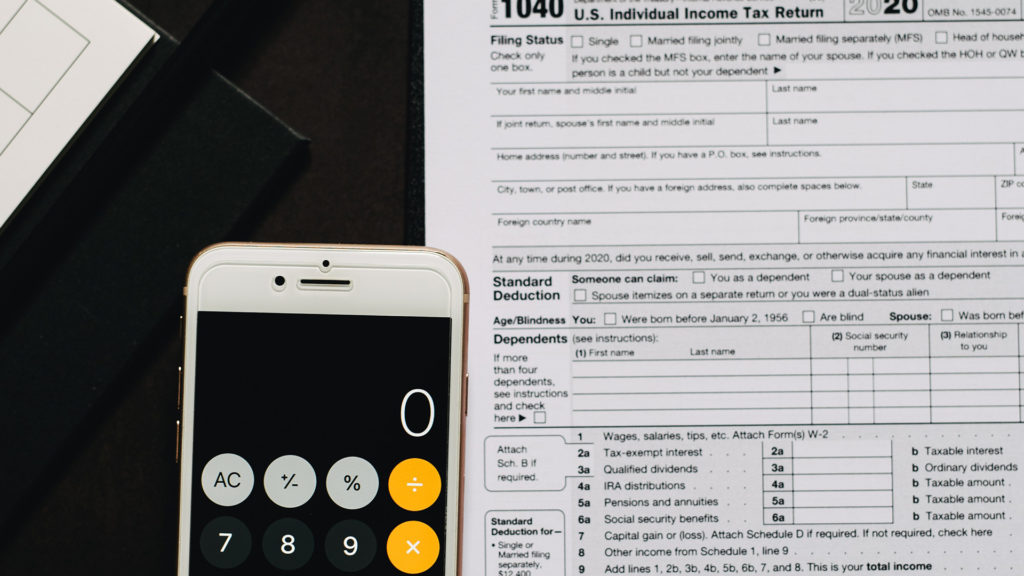by ASHLEY NIELSEN
You can claim qualifying dependents on your tax returns for big breaks that help you save on your next bill or receive a larger refund. A dependent is a child or relative who depends on you to take care of them, allowing you to claim certain tax deductions and credits. Determining if you have a dependent can be difficult if you’re taking care of multiple people, but it mostly depends on their relationship to you and other criteria outlined by the IRS. In this article, we’ll discuss everything you need to know when claiming dependents on your tax returns.
Who Qualifies?
Only qualifying children and relatives can be dependents. To claim a child, they must be 18 years or younger at the end of the year or be 23 or younger if they’re a full-time student for at least five months out of the year. Additionally, a child can be over those age limits if they are permanently disabled.
In any of these cases, the child dependent must live with you for more than half the year. Of course, there are some exceptions. For example, if your child lives in a dorm during the school year, they can still qualify as a dependent because their legal address is your home. Other exceptions include:
- The child was in the hospital or juvenile detention
- The child passed away or was born during the tax year
- Children with divorced parents
Additionally, the child can’t be responsible for more than half of their own financial support. For example, if your child files their own tax return, you can’t claim them as a dependent.
Qualifying relatives are slightly different because there are no age limitations. Instead, they must meet a different set of conditions. These individuals cannot be someone else’s dependent, so if another person is filing a tax return and claiming them, you cannot. The individual must also live with you. They can be your child, stepchild, foster child, sibling, nephew, parent, grandparent, aunt, or uncle, but they have to live within the same household for you to claim them, and they must live with you year-round.
Of course, there are some situations when your dependent might not live with you, and you can still claim them as a dependent as long as the other things are true. For example, if you support elderly parents who live in a senior community, you can claim them if you’re paying at least half of their bills.
Who Does Not Qualify?
Individuals who don’t qualify as your dependents include those who are claimed by others. Additionally, if you are a dependent, you can’t claim a dependent.
What Are the Available Tax Breaks?
 If you use professional tax software to do your annual taxes, it will account for your dependents by asking you a series of questions about your filing status, number of dependents, and more. A few tax breaks you may be eligible for include:
If you use professional tax software to do your annual taxes, it will account for your dependents by asking you a series of questions about your filing status, number of dependents, and more. A few tax breaks you may be eligible for include:
- Head of household filing status in which you can receive a higher credit to reduce your tax burden.
- Child tax credit for parents with children under the age of 17 is available for single and separate married filers.
- Child care tax credit parents can receive for paying for daycare for a qualifying dependent while working or going to school.
- Earned income credit for those with moderate to low income reduces income tax and increases tax refunds.
- The adoption credit is a non-refundable tax credit for expenses paid for the adoption of a child, and the remaining credit can be used for up to five years.
- Medical expenses if you paid for medical care for your qualifying dependent.
- American Opportunity Tax Credit and Lifetime Learning Credit for individuals to cover the costs of education expenses for themselves or dependents while enrolled in college or work-related training.
When Do You Stop Claiming Children as Dependents?
If your child is over the age of 23 and takes care of their own bills, you can no longer claim them as a dependent. Other times when you may no longer claim children as dependents include:
- They’ve reached the age limit of 18 or 23 for full-time students
- You don’t pay for half of their financial support
- They moved out of the house
Do Adult Dependents File Tax Returns
Adult dependents should file tax returns if they make an income of more than $12,550 and are under the age of 65. Dependents over the age of 65 or blind might have to file a tax return if they earned more than $14,250.
How Does It Work For Divorced Head of Households?
Being divorced can make it more complicated to determine who can claim dependents. In general, the IRS might determine that another parent should be able to claim the child even though another might have full custody. Ultimately, the custodial parent is who the child lives with most of the year, but if a child lives with both parents equally, the custodial parent is the one with the highest income.
Both parents can still try to claim the dependent if they file their returns by mail, in which case the IRS might tell you to figure out who should claim the child. In most cases, the parent who the child lived with the longest during the year and the one with the highest income will claim the child as a dependent. Of course, if you have a difficult time sorting this out on your own, you can hire an accountant who can tell you which one of you qualifies for the tax credits.
Final Thoughts
If you have a dependent, you must claim them on your tax return to reduce your tax burden with credits. While you can file without a dependent, it’s always best to take advantage of any credits you can to give you a bigger refund at the end of the year. If you’re unsure if your child or relative qualifies as a dependent, consult a tax professional who can help you determine which credits you qualify for.







